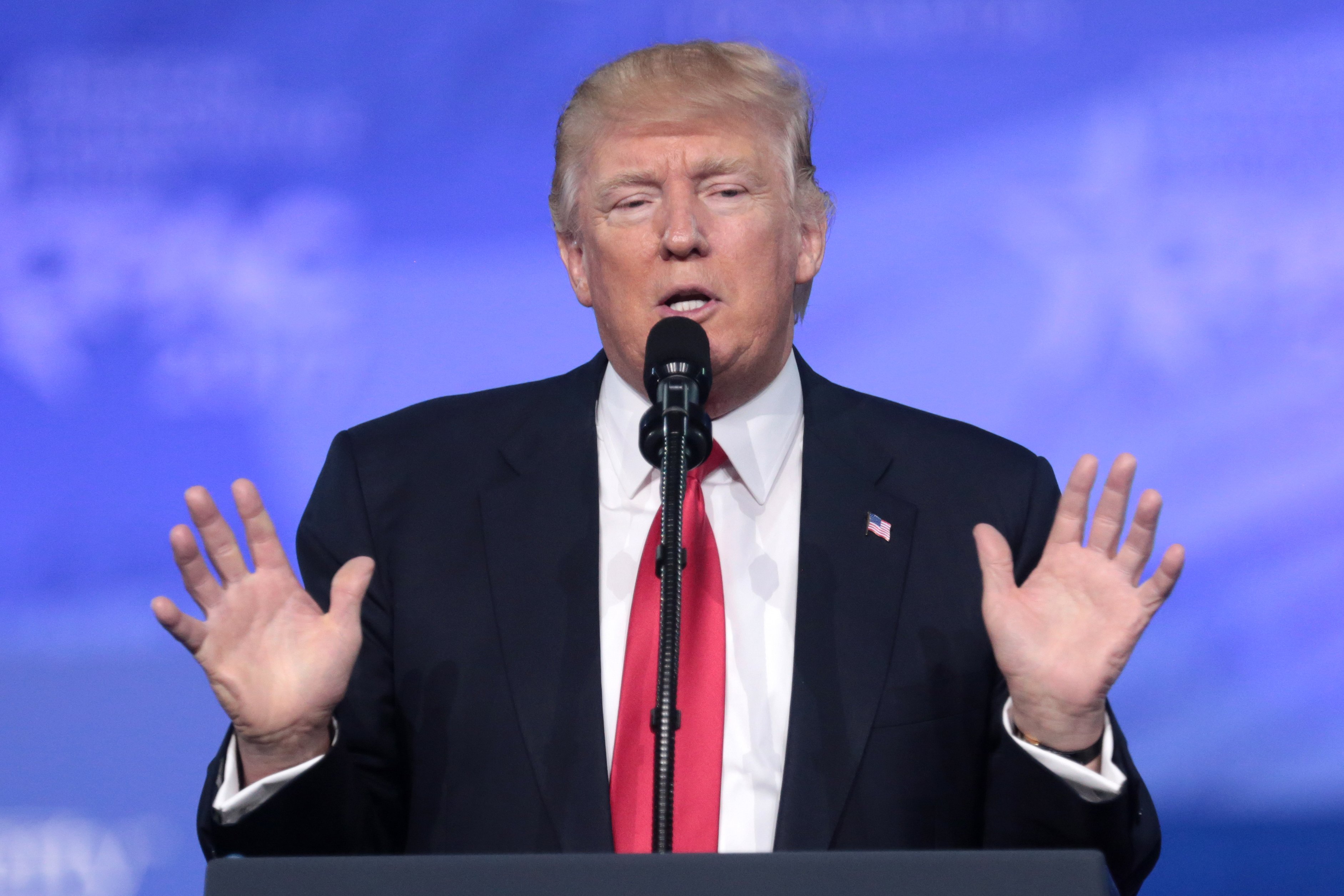Just one day after students allegedly deployed stink bombs during controversial conservative filmmaker Dinesh D’Souza’s guest lecture at Stanford, President Donald Trump announced his intent to sign an executive order “requiring colleges and universities to support free speech if they want federal research funds.”
While Stanford is a private university, its website notes that “the federal government sponsors approximately 80 percent” of its 6,000-plus externally sponsored projects, including the SLAC National Accelerator Laboratory.
Trump made the announcement at the annual Conservative Political Action Conference (CPAC) on Saturday. Multiple White House officials did not respond to emails or phone calls from The New York Times regarding details of the executive order, nor did the White House clarify when Trump may sign the order, The Times reports.
In his CPAC speech, Trump invited to the stage conservative activist Hayden Williams, who was assaulted by a non-student on at the University of California, Berkeley while recruiting for the college’s chapter of youth conservative organization Turning Point USA (TPUSA) on Feb. 19.
“Showing that actions have consequences is the surest way to deter future violent attacks on conservatives,” wrote the Stanford College Republicans (SCR) in a Feb. 21 Facebook post in support of pressing charges against Williams’ assaulter.
TPUSA’s recently founded Stanford chapter held its first open meeting in January. Many of the new group’s members, including its president, are also part of the SCR, whose “Change My Mind” event supporting Brett Kavanaugh’s confirmation to the Supreme Court in October 2018 was mired with later-dropped battery charges after Melinda Hernandez ’21 made physical contact with SCR President John Rice-Cameron ’20.
Less than one week after the “Change my Mind” incident, the Associated Students of Stanford University (ASSU) reintroduced the goals for its ASSU Director of Academic Freedom cabinet position. Among the stated goals are formalizing “a process for adjudicating Fundamental Standard violations by invited speakers,” as well as responding “in a timely and principled manner to any free speech issues throughout the year.”
The current ASSU Director of Academic Freedom is fifth-year graduate student Zintis Inde, who works with the Working Group on Funding Policies to “identify potential threats to student research, such as changes to federal funding of studies and fellowships that focus on controversial topics,” according to the ASSU website.
“If [colleges and universities] want our dollars, and we give it to them by the billions, they’ve got to allow people like Hayden and many great young people, and old people, to speak,” Trump said on Saturday.
Despite Trump’s announcement, it may take more than an executive order to withhold federal research funds from colleges. In the event that Congressional approval is required, Trump may face resistance from the recently left-leaning House of Representatives.
“After our continuous battles to preserve our first amendment rights from the relentless assault of the unhinged Left, SCR is heartened that President Trump has announced an a executive order defending free speech on college campuses,” SCR wrote on Saturday. “We look forward to justice being rendered by due process of law to preserve the fundamental right of free speech for all Americans.”
The Stanford Democrats have not responded to The Daily’s request for comment.
This article has been corrected to note that Hayden Williams is not a student at the University of California, Berkeley. The Daily regrets this error.
Contact Holden Foreman at hs4man21 ‘at’ stanford.edu.
